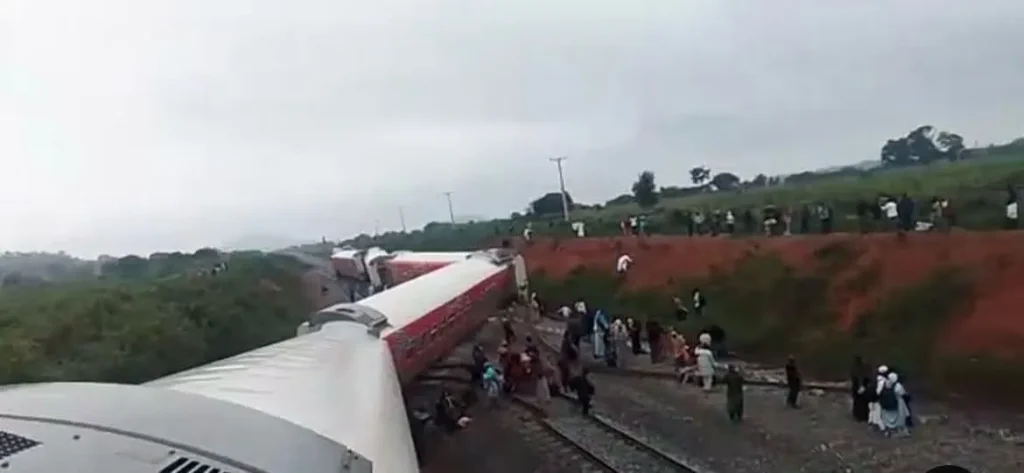
The Nigerian Railway Corporation (NRC) has confirmed that 618 people were safely evacuated after a Kaduna-bound train derailed on Tuesday morning along the Abuja–Kaduna corridor. The derailment occurred at approximately 11:09 a.m. at KM 49, between Kubwa station and Asham station, halting one of Nigeria’s busiest passenger routes.
Kayode Opeifa, Managing Director of the NRC, disclosed in an official statement that those on board included 583 passengers, 15 NRC crew members, one medical officer, eight cleaners, and 11 catering staff. All passengers were eventually moved to safety.
“A total of 618 persons were successfully evacuated from the train. Seven passengers sustained varying degrees of injury and were immediately transported to hospitals by emergency medical personnel,” Mr. Opeifa said.
Seven individuals suffered minor to moderate injuries during the incident. According to NRC officials, emergency response teams acted promptly, deploying ambulances and medical staff to the site to ensure immediate care.
A rescue train dispatched from Idu station transported the remaining passengers back to Idu and Kubwa stations, from where they continued to their destinations.
The NRC has instructed its third-party ticketing vendors to issue full refunds to all passengers affected by the derailment. Investigations into the cause of the derailment have begun under the supervision of the Federal Ministry of Transport and other relevant agencies.
“The process of investigation into the incident has commenced… All Abuja–Kaduna Train Services (AKTS) have been temporarily suspended pending recovery and clearance of the site,” Mr. Opeifa added.
The Abuja–Kaduna rail service, a major link between Nigeria’s capital and the North-West, has been suspended indefinitely. NRC says services will resume only after thorough site clearance and official safety certifications.
This derailment raises new concerns about Nigeria’s rail safety record. The Abuja–Kaduna corridor, commissioned in 2016, has experienced multiple disruptions, including mechanical faults, derailments, and security incidents.
Experts have consistently warned that aging infrastructure, poor maintenance, and vandalism remain critical threats to the NRC’s operations.
Transportation analyst Dr. Bamidele Akinyemi told NAN that derailments in Nigeria are often linked to a combination of factors, including:
“Rail transportation in Nigeria has seen improvements since the 2016 modernization drive, but without continuous investment in safety technology, these accidents will persist,” Dr. Akinyemi noted.
Passengers and advocacy groups have taken to social media, calling for greater transparency in NRC operations and demanding an independent audit of all rail infrastructure nationwide.